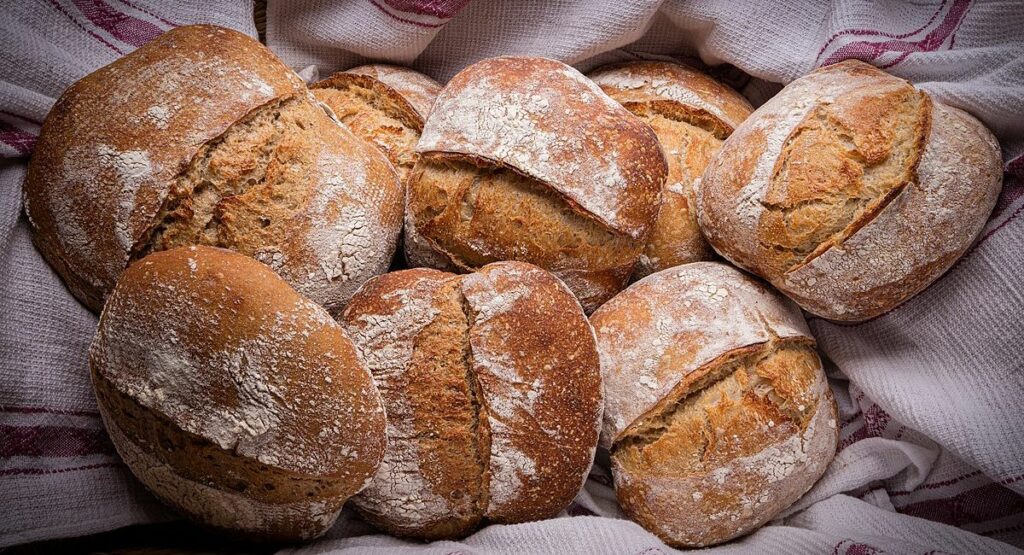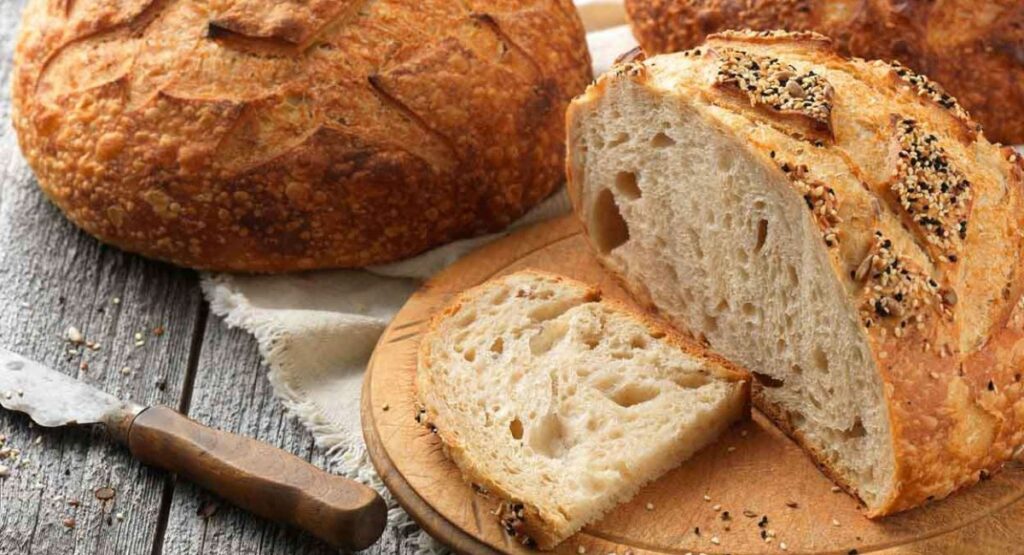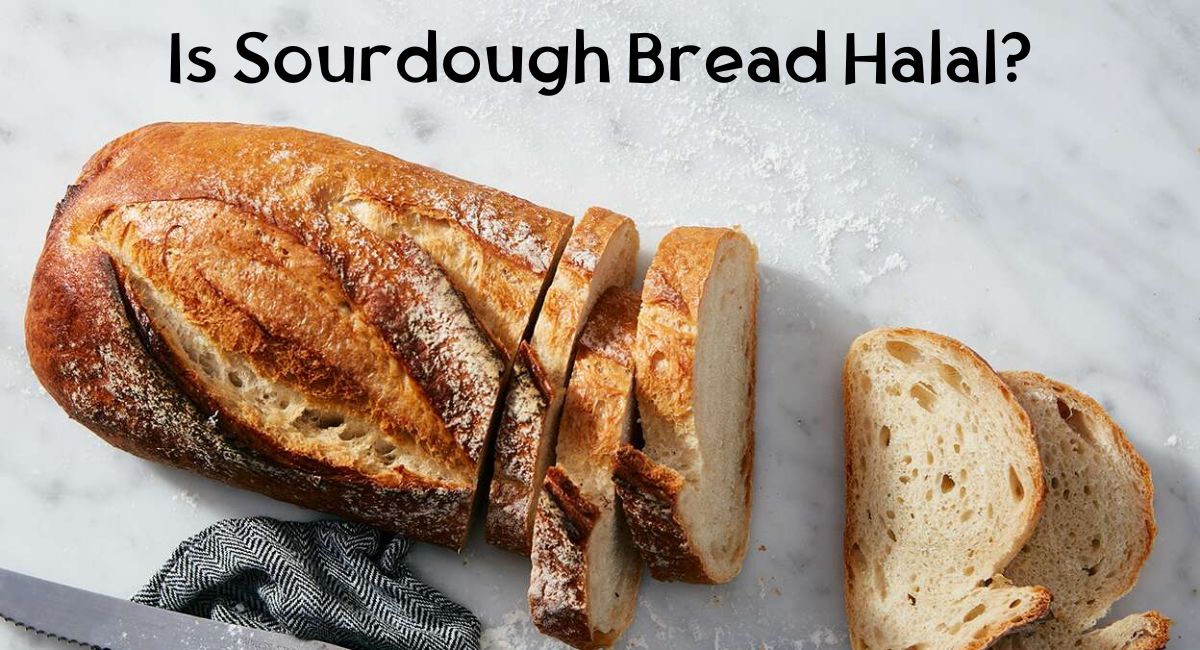In a world of diverse dietary practices and religious beliefs, questions about the halal status of various food items often arise. Sourdough bread, with its unmistakable tangy flavour and unique baking process, is no exception. As the popularity of sourdough bread continues to rise, it’s natural to wonder whether this ancient artisanal delight meets the requirements of halal consumption.
In this comprehensive blog post, we delve into the question that has piqued the curiosity of many: is sourdough bread halal? We will explore the components and preparation methods of sourdough bread to determine whether it aligns with the guidelines of halal food consumption.
So, let’s embark on a journey to unravel the truth about sourdough bread and its status in the realm of halal cuisine.
Understanding Halal
Before delving into the specifics of sourdough bread, it’s essential to understand the concept of halal. Halal refers to what is permissible or lawful according to Islamic law. Muslims are obliged to consume food that meets specific criteria, including the source of ingredients, the method of preparation, and the absence of certain prohibited elements.
What Makes Sourdough Bread Unique?
Sourdough bread, with its characteristic tang and chewy texture, has captivated the taste buds of bread enthusiasts for centuries. Unlike commercial yeast-based bread, which relies on the rapid fermentation provided by packaged yeast, sourdough bread utilizes a naturally occurring wild yeast and bacteria culture.
The Process Behind Sourdough Bread
The hallmark of sourdough bread lies in its fermentation process, which involves a starter culture known as the “sourdough starter.” This starter is a mixture of flour and water that captures wild yeast and bacteria from the environment. Over time, this symbiotic relationship of wild yeast and bacteria ferments the dough, creating carbon dioxide bubbles that give sourdough bread its distinctive texture.
Ingredients Of Sourdough Bread
The ingredients commonly used in making sourdough bread are:
- Flour: Typically, bread flour or all-purpose flour is used. It provides the structure and texture to the bread.
- Water: Essential for hydrating the flour and activating the fermentation process.
- Sourdough Starter: The key ingredient that gives sourdough bread its unique flavour and texture. The starter is a mixture of flour and water that has captured wild yeast and bacteria from the environment.
- Salt: Enhances the flavour of the bread and helps regulate fermentation.
Note: The above ingredients are the basic components of sourdough bread. Some recipes may include additional ingredients like honey, olive oil, or seeds for added flavour and texture variations. It’s important to review the specific recipe or check with the baker for any additional ingredients used in their sourdough bread.
Are you curious about the Halal status of bread? Look no further! Our comprehensive is bread halal article dives deep into the topic, uncovering the truth behind Halal bread production. Discover the intricate processes involved in ensuring bread meets the Halal standards and regulations. From sourcing ingredients to manufacturing practices, we explore every aspect that determines whether bread is truly Halal.
Are All Ingredients In Sourdough Bread Halal?

Yes, the main ingredients typically used in sourdough bread—flour, water, and salt—are generally considered halal. These ingredients do not raise any concerns from an Islamic dietary perspective. However, it’s important to ensure that the ingredients used are halal-certified or sourced from reputable suppliers that adhere to halal standards.
Regarding the sourdough starter, which is a mixture of flour and water that captures wild yeast and bacteria, there might be some concerns about the fermentation process and the potential production of alcohol. Islamic dietary laws prohibit the consumption of alcohol. However, scholars have examined the fermentation process in sourdough bread and the resulting alcohol content.
The consensus among scholars is that the small amount of alcohol produced during sourdough fermentation is negligible and evaporates during the baking process. This means that the final product, the sourdough bread itself, is considered halal and permissible for consumption.
It’s important to note that the alcohol content in sourdough bread is significantly lower than the alcohol content found in alcoholic beverages. Islamic dietary guidelines take into account the negligible amount of alcohol produced during fermentation and the fact that it evaporates during baking.
Nevertheless, it is always advisable to verify the ingredients used in the sourdough starter and the production methods employed by bakeries or commercial establishments. This ensures that the sourdough bread meets individual halal requirements and has not come into contact with non-halal substances.
If in doubt, it is recommended to consult with religious scholars or Islamic authorities who can provide specific guidance based on one’s dietary requirements and beliefs.
Is Sourdough Bread Halal?
Sourdough bread is a type of bread that is commonly enjoyed by people around the world. When it comes to determining whether sourdough bread is halal, it is essential to understand the ingredients and the process involved in its production.
Sourdough bread is primarily made using flour, water, and a sourdough starter, which is a fermented mixture of flour and water. The fermentation process occurs when naturally occurring wild yeast and bacteria in the environment combine with flour and water, resulting in the production of carbon dioxide. This natural fermentation gives sourdough bread its distinct flavour and texture.
From an Islamic perspective, the halal status of sourdough bread depends on the ingredients used and the fermentation process. Flour, water, and naturally occurring yeast are all halal ingredients. However, if any haram (forbidden) ingredients, such as alcohol or animal-derived additives, are added to the sourdough bread, it would no longer be considered halal.
Regarding the fermentation process, if the sourdough starter is derived from halal sources and does not involve any haram ingredients, the fermentation process itself does not affect the halal status of the bread. The wild yeast and bacteria responsible for fermentation are considered permissible in Islamic dietary laws.
It is crucial to note that the halal status of sourdough bread can vary depending on the source and the production methods employed by different manufacturers. It is recommended for individuals seeking halal-certified sourdough bread to look for products that carry a recognized halal certification symbol. These symbols indicate that the product has been thoroughly examined and approved as meeting the halal standards set by Islamic authorities.
In conclusion, sourdough bread can be halal if it is made using halal ingredients and does not contain any haram additives. Checking for halal certification symbols on the packaging can provide assurance regarding the compliance of the sourdough bread with halal standards. As always, it is advisable for individuals to consult with their local Islamic authorities or scholars for further guidance and clarification on specific food products.
Have you ever wondered – is yeast halal or haram? Step into the world of halal and embark on an exploration of yeast’s halal status. Gain valuable insights into the nature and production of yeast, as well as its potential implications for halal-conscious individuals. Uncover the truth about the various types of yeast and their halal considerations.
The Ruling on Sourdough Bread

Islamic scholars have thoroughly examined the process of sourdough fermentation and its potential alcohol content to determine its halal status. The consensus among scholars is that the small amount of alcohol produced during sourdough fermentation is negligible and evaporates during the baking process, rendering the final product halal and permissible for consumption.
It is important to note that the alcohol produced during fermentation in sourdough bread is significantly lower than the alcohol content found in other fermented products, such as alcoholic beverages. The evaporation that occurs during baking further reduces any residual alcohol content, leaving behind only the unique flavours and textures associated with sourdough bread.
Nevertheless, to ensure the halal status of sourdough bread, it is advisable to use a sourdough starter that is derived from halal ingredients and has been carefully maintained to avoid any cross-contamination with non-halal substances.
Moreover, it is essential for individuals with specific dietary requirements, including those adhering to a halal lifestyle, to verify the ingredients and production methods of sourdough bread offered by commercial establishments or bakeries. Some commercial brands may incorporate additional ingredients or processing methods that could potentially affect the halal status of the bread.
As with any food item, it is recommended to consult with religious scholars or Islamic authorities who can provide specific guidance based on the individual’s dietary requirements and beliefs.
Conclusion
In conclusion, sourdough bread, with its captivating flavours and unique baking process, can indeed be considered halal. While the fermentation process may produce trace amounts of alcohol, the evaporation that occurs during baking renders sourdough bread permissible for consumption in accordance with Islamic dietary guidelines.
As always, it is advisable to ensure that the ingredients and production methods of sourdough bread align with personal halal requirements. By understanding the intricate details of the fermentation process and seeking guidance from knowledgeable sources, individuals can confidently savour the delightful taste of sourdough bread while adhering to their halal lifestyle.
Delve into the fascinating world of halal and discover the truth about gluten. Unravel the misconceptions surrounding gluten and its compatibility with halal dietary practices. Explore the origins of gluten, its production process, and its potential implications for halal consumers with our is gluten halal or haram guide.






